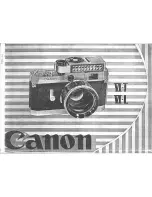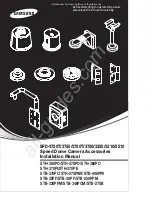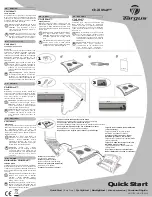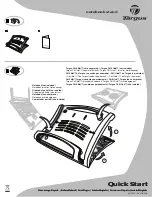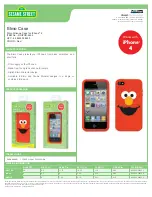
Medical
R
Consult the manufacturer of any
personal medical devices, such as
pacemakers or hearing aids, to
determine if they are adequately
shielded from external RF (radio
frequency) energy. DECT features
operate between 1.88 GHz and
1.90 GHz with a peak transmission
power of 250 mW.
R
Do not use the product in health
care facilities if any regulations
posted in the area instruct you not to
do so. Hospitals or health care
facilities may be using equipment
that could be sensitive to external
RF energy.
Lithium Ion (Li-Ion) battery
R
Do not open, puncture, crush, or
drop the battery. A damaged battery
must not be used. This can result in
the risk of fire, explosion,
overheating, and leaking of the
electrolyte.
R
Do not touch the terminals
and
with metal objects.
R
Risk of explosion if battery is
replaced by an incorrect type.
Dispose of used battery according to
local regulations.
R
If any electrolyte should come into
contact with your hands or clothes,
wash it off thoroughly with water.
R
If any electrolyte should come into
contact with your eyes, never rub
your eyes. Rinse your eyes
thoroughly with water, and then
consult a doctor.
CAUTION
Installation and location
R
Never install wiring during a lightning
storm.
R
The AC adaptor is used as the main
disconnect device. Ensure that the
AC outlet is installed near the
product and is easily accessible.
R
To avoid the risk of strangulation,
keep the product and the AC
adaptor cord at least 1 m from a
child’s crib and out of the reach of
small children.
Lithium Ion (Li-Ion) battery
R
Use only the specified battery.
R
Insert the battery correctly.
R
Do not leave the battery in an
automobile exposed to direct
sunlight for a long period of time with
the doors and windows closed.
R
Remove the battery if you do not
use the product for a long period of
time. Keep it in a cool, dark area.
R
Do not replace a battery with wet
hands.
R
Stop using the battery immediately
and keep away from fire if it emits an
abnormal smell or leaks electrolyte.
Released electrolyte may cause fire
or burns.
R
Exercise care when handling the
batteries. Do not allow conductive
materials such as rings, bracelets, or
keys to touch the batteries,
otherwise a short circuit may cause
the batteries and/or the conductive
material to overheat and cause
burns.
R
Do not put any conductive materials
such as coins or hairpins onto the
5
Important Information





















